Top 6 Health Benefits of Hazelnuts
The filbert, often known as the hazelnut, is a type of nut that grows on the Corylus tree. It is primarily grown in Turkey, Italy, Spain, and the United ... read more...States. Hazelnuts have a sweet taste and can be consumed fresh, roasted, or mashed into a paste. Hazelnuts, like other nuts, are high in nutrients and include a lot of protein, lipids, vitamins, and minerals. Here are the best health benefits of hazelnuts.
-
Hazelnuts have an excellent nutritional profile. Although high in calories, they are high in nutrients and good fats. One ounce (28 grams, or about 20 whole kernels) of hazelnuts contains:
- Calories: 176
- Total fat: 17 grams
- Protein: 4.2 grams
- Carbs: 4.7 grams
- Fiber: 2.7 grams
- Vitamin E: 21% of the RDI
- Thiamin: 12% of the RDI
- Magnesium: 12% of the RDI
- Copper: 24% of the RDI
- Manganese: 87% of the RDI
Hazelnuts are also high in vitamin B6, folate, phosphorus, potassium, and zinc. Furthermore, they are a strong source of omega-6 and omega-9 fatty acids, such as oleic acid, and are high in mono- and polyunsaturated fats. Furthermore, a one-ounce portion contains 2.7 grams of dietary fiber, which corresponds to approximately 11% of the daily value. However, hazelnuts contain phytic acid, which has been proven to limit mineral absorption from the nuts, such as iron and zinc.
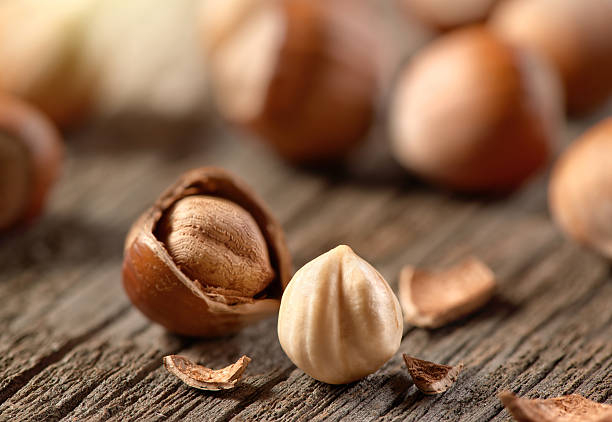
Full of Nutrients 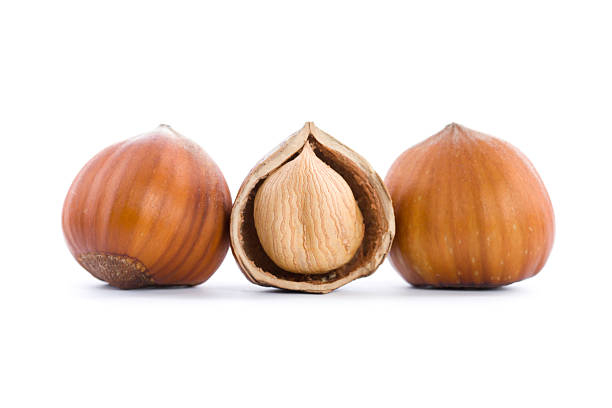
Full of Nutrients -
Hazelnuts contain a high concentration of antioxidants. Antioxidants protect the body from oxidative stress, which can harm cell structure and accelerate the aging process, as well as cancer and heart disease. Phenolic chemicals are the most abundant antioxidants in hazelnuts. They have been shown to help lower blood cholesterol and inflammation. They may also be useful for heart health and cancer prevention. An 8-week study found that eating hazelnuts, with or without the skin, reduced oxidative stress substantially more than not eating hazelnuts, which had no impact.
The majority of the antioxidants are located in the nut's skin. This antioxidant concentration, however, may decrease after roasting. As a result, it is preferable to consume entire, unroasted kernels with the skin rather than peeled, roasted, or unroasted kernels.

Loaded With Antioxidants 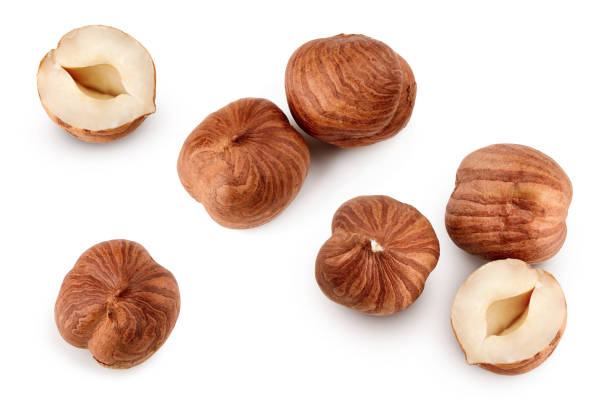
Loaded With Antioxidants -
It has been proven that eating nuts protect the heart. The high concentration of antioxidants and good fats in hazelnuts may boost antioxidant potential and lower blood cholesterol levels. A month-long study of 21 persons with elevated cholesterol levels found that hazelnuts accounted for 18-20% of their total daily calorie intake. The findings revealed that cholesterol, triglycerides, and harmful LDL cholesterol levels had been lowered. Participants also saw changes in their vascular health and inflammation markers in their blood.
Furthermore, a meta-analysis of nine research involving over 400 people found that eating hazelnuts reduced harmful LDL and total cholesterol levels while leaving good HDL cholesterol and triglycerides unaltered. Other studies on heart health have found similar findings, with lower blood fat levels and higher vitamin E levels. Furthermore, hazelnuts' high quantity of fatty acids, dietary fiber, antioxidants, potassium, and magnesium appears to help stabilize blood pressure. Eating 29 to 69 grams of hazelnuts per day has been associated with improvements in heart health measures in general.

May Be Good for the Heart 
May Be Good for the Heart -
The high concentration of antioxidant chemicals, vitamins, and minerals in hazelnuts may provide anti-cancer benefits. Hazelnuts have the highest concentration of proanthocyanidins, a type of antioxidant found in nuts such as pecans and pistachios. Proanthocyanidins have been found in animal and test-tube experiments to help prevent and treat some types of cancer. They are thought to defend against oxidative stress. Furthermore, hazelnuts are high in vitamin E, another potent antioxidant that has been shown to protect against cell damage that may cause or promote cancer.
Similarly, a one-ounce serving of hazelnuts has 87% of the RDI for manganese. Manganese has been proven to aid the functioning of specific enzymes, which may minimize oxidative damage and the risk of cancer. Several in vitro studies have suggested that hazelnut extract may be useful in the treatment of cervical, liver, breast, and colon cancer. Furthermore, after an eight-week study period, an animal trial employing a product made from hazelnut skin extract resulted in a lower risk of colon cancer. Because most studies on the advantages of hazelnuts against cancer growth have been conducted in test tubes and on animals, further human studies are required.

Linked With Lower Rates of Cancer 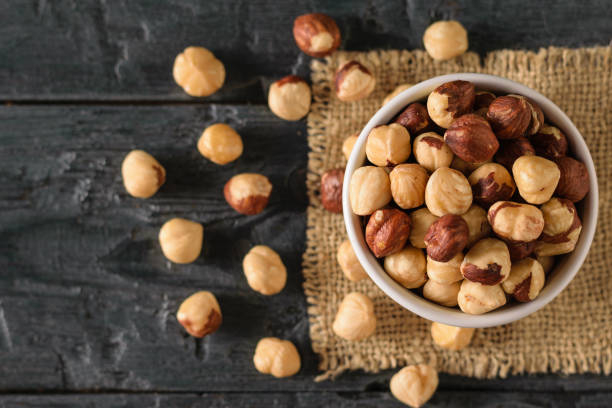
Linked With Lower Rates of Cancer -
Because of their high quantities of good fats, hazelnuts have been associated with lower inflammatory indicators. One study investigated how eating hazelnuts affected inflammatory markers, such as high-sensitivity C-reactive protein, in 21 people with high cholesterol levels. After four weeks of eating hazelnuts for 18-20% of their total calorie consumption, the subjects showed significant reductions in inflammation. Furthermore, eating 60 grams of hazelnuts per day for 12 weeks helped lower inflammatory markers in people who were overweight or obese.
Another study looked at how hazelnuts affected inflammation. It was discovered that eating 40 grams of hazelnuts could lower the inflammatory response in healthy individuals. Similarly, 50 persons with metabolic syndrome saw a reduction in inflammation after taking 30 grams of a combination of raw nuts — 15 grams walnuts, 7.5 grams almonds, and 7.5 grams hazelnuts — for 12 weeks, compared to a control group. Most research, however, finds that consuming hazelnuts alone is insufficient. It is also necessary to maintain a calorie-controlled diet in order to minimize inflammation.
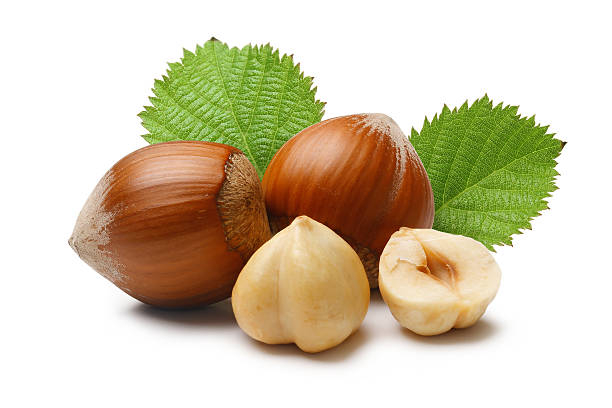
Could Decrease Inflammation 
Could Decrease Inflammation -
Almonds and walnuts, for example, have been demonstrated to help lower blood sugar levels. Despite their scarcity, hazelnuts have been shown in studies to help lower blood sugar levels. In one study, 48 participants with type 2 diabetes were given hazelnuts to see how they affected their fasting blood sugar levels. Half of the participants ate hazelnuts as a snack, while the rest served as a control group. The hazelnut group did not report substantial reductions in fasting blood sugar levels after eight weeks.
In another trial, 50 participants with metabolic syndrome were given 30 grams of mixed nuts — 15 grams of walnuts, 7.5 grams of almonds, and 7.5 grams of hazelnuts. The results demonstrated a considerable drop in fasting insulin levels after 12 weeks. Furthermore, oleic acid, the major fatty acid found in hazelnuts, has been demonstrated to improve insulin sensitivity. In a two-month trial of 11 persons with type 2 diabetes, an oleic acid-rich diet dramatically lowered fasting blood sugar and insulin levels while enhancing insulin sensitivity. A diet high in nuts, including hazelnuts, appears to help decrease blood sugar and boost insulin sensitivity.

May Help Lower Blood Sugar Levels 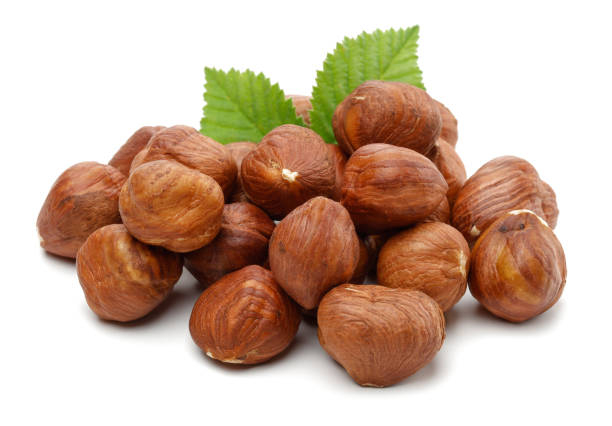
May Help Lower Blood Sugar Levels



























